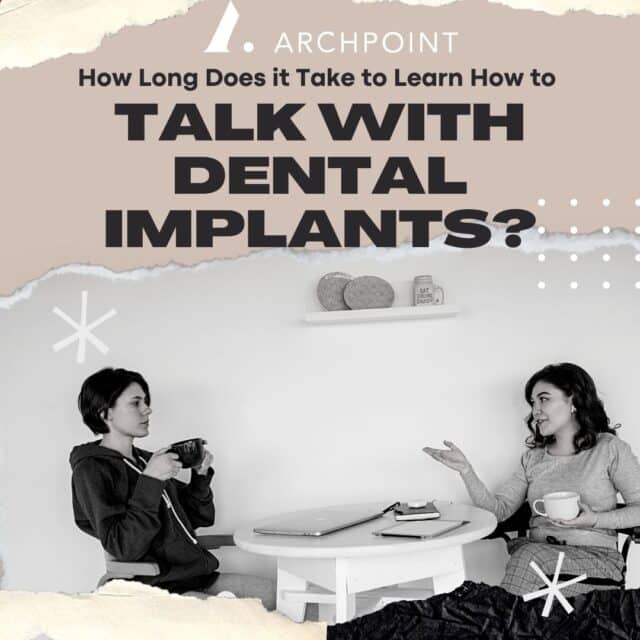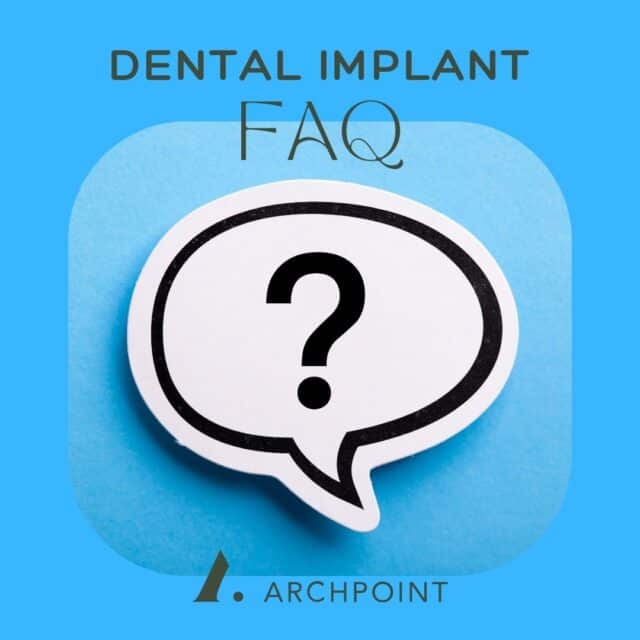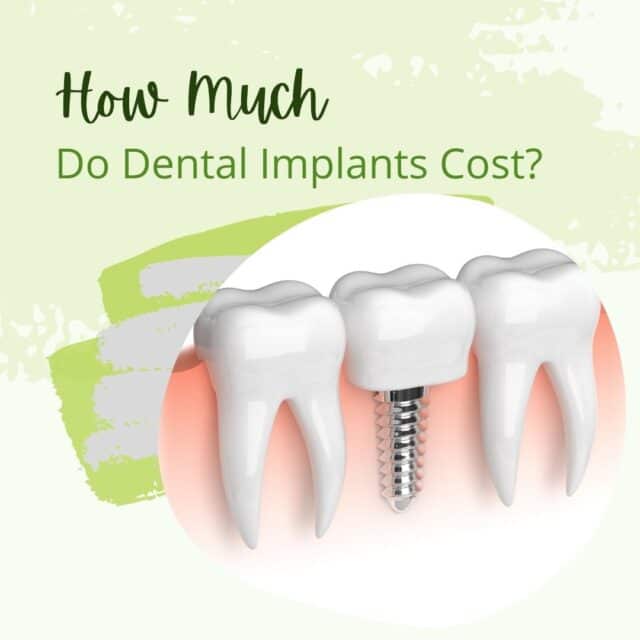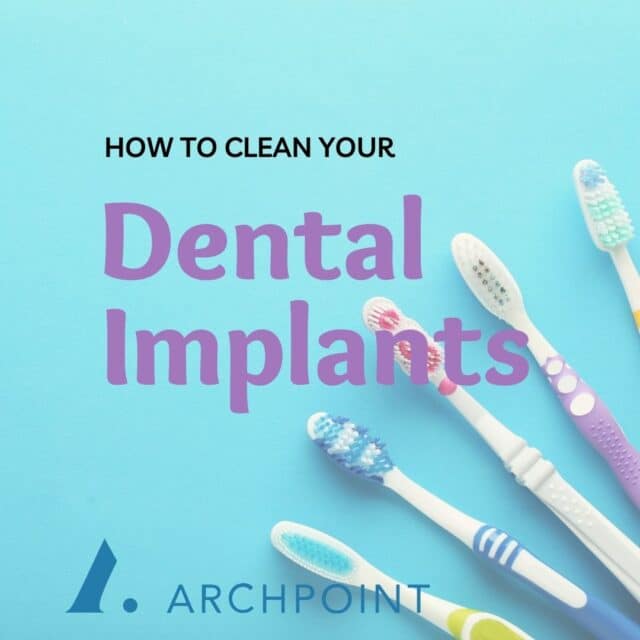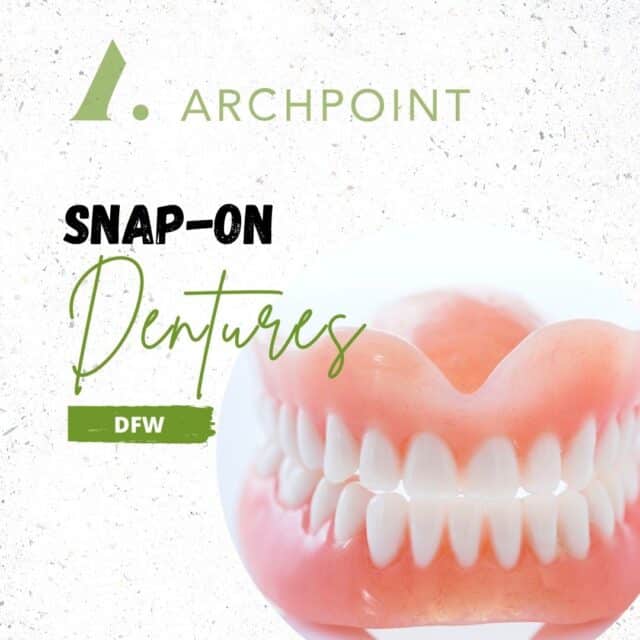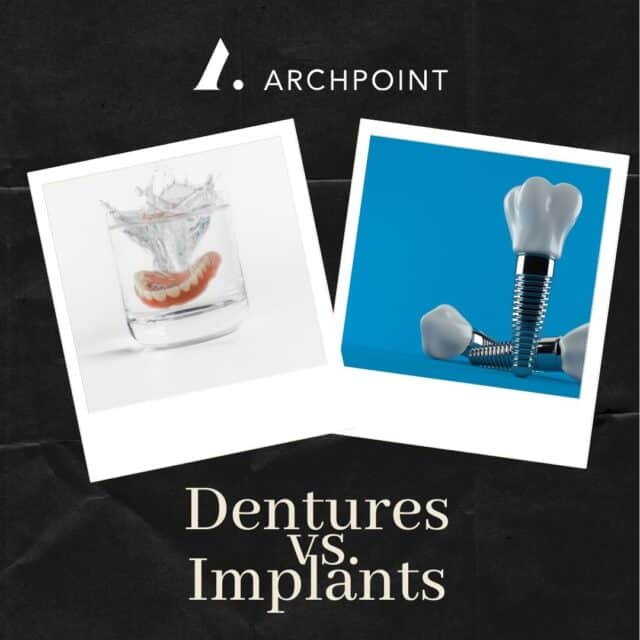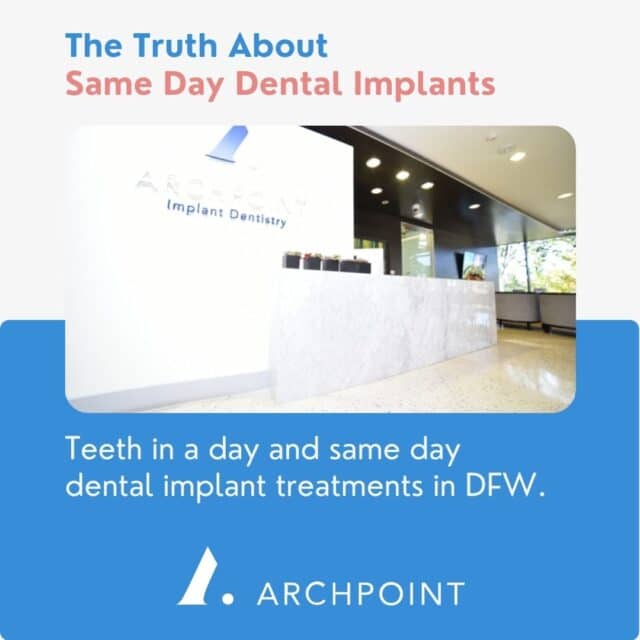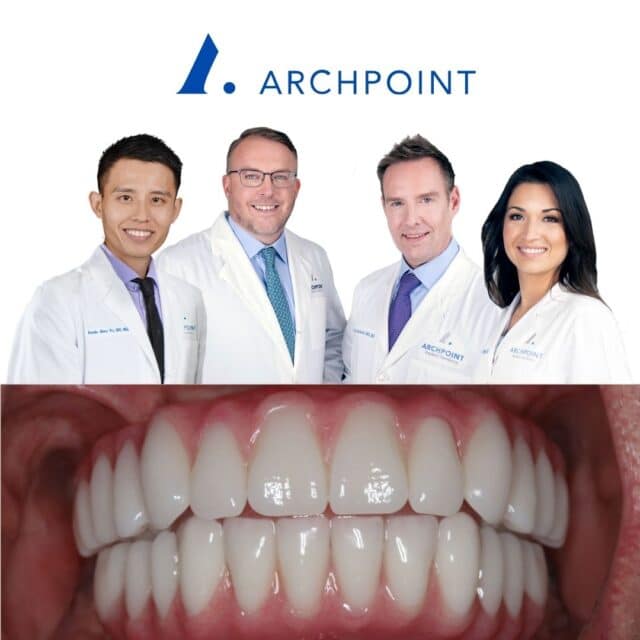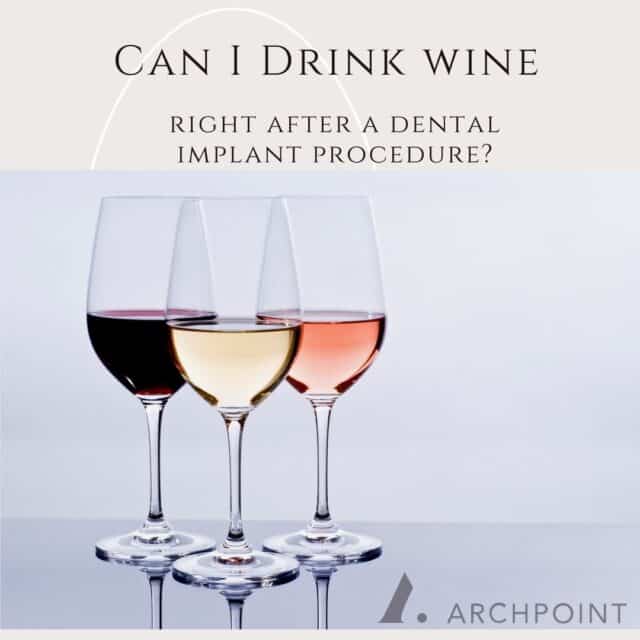Some of the most common questions we hear at our DFW dental implant office is “Will dental implants change the way I talk?” And “How long will it take me to get used to talking with dental implants?”, “Is speaking with implants the same as talking with regular teeth?”
If you’ve already worn dentures in the past, you know that getting used to speaking with new “teeth” in your mouth can take some time. Remember the way children sound when they talk after losing a tooth? It’s fairly typical for there to be some slurring or changes in natural speech patterns when our teeth change. But is it the same if you’re getting dental implants?
Adapting and Practice Talking
Over the past couple of years, a lot of us learned how to adapt our speech to talking with a mask over our mouths. At first, we thought it would be short-lived. Maybe we didn’t get out because we didn’t want to wear a mask, or it was just too cumbersome to try to understand what other people were saying. But with time, everyone—especially kids still in school—learned to talk with their new facial accessory.
Just like getting used to wearing a mask, speaking with dental implants takes a while to adapt to. But the key is practice, practice, practice. The more you do it, the easier it becomes to form natural speech patterns against your new smile.
We’ll Give You Special Talking Exercises
Have you ever had to adjust to something like braces, a new pair of shoes, or even being fitted for a bicycle? The fit and feel may not be perfect from the exact moment that you first use them. But when everything is adjusted and you know how to move your body in relation to those things, it starts to feel more natural.
One of the ways we help our DFW dental implant clients get used to new speaking patterns is to give them special exercises to use once they get home. You could almost call it physical therapy for dental implants. These specific movements and exercises help you train your mouth to speak clearly with your new set of teeth. Even if your prosthesis is streamlined and only takes up a small amount of space, your tongue needs to adjust to the minuscule changes in the shape of your bite for your normal speech patterns to return. These exercises will help your tongue “learn” more quickly. The goal is to make speech patterns natural so that you can speak freely without worrying about how you sound.
Our Implant Experts will Adjust Your New Smile
Once your dental implant restorations are first installed, we’ll watch and listen to you speak. As we carefully assess how your mouth is forming certain sounds, we can make adjustments to your prosthesis to improve your natural speaking patterns.
A lot of people find that working with a dental implant specialist such as a prosthodontist allows them to speak more clearly. Since prosthodontists specialize in complex restoration designs and full mouth rehabilitation cases, it minimizes the impact on everyday activities like talking on the phone, laughing around friends, or sharing a meal with your family.
Give it About 21 Days (Until Talking Normally)
It takes about an average of three weeks to adjust to talking with your new dental implants. For some people, it’s less, while others require a little more time. But otherwise, it’s typically about 21 days.
Since dental implants are permanent, you’re not taking them in and out or tempted to leave them on your nightstand. When you’re basically forced into a situation where you’re wearing them every day, adapting to your new speech patterns comes naturally. Whereas someone who wears traditional removable dentures may take even longer to adjust because they aren’t wearing their prosthesis all day, every day.
We saw the same thing with kids who had to start wearing a mask full-time to school. At first, wearing them was a little cumbersome. But after a few weeks of wearing them all day, every day, everyone adapted to the new normal. Speaking with a mask no longer sounds funny or hard to do. In fact, we do it all day here in our dental office!
Whenever a child loses their front tooth and starts to speak with a slight lisp, you generally tend to see their speech patterns level out after a few weeks. How? Because their body and tongue adapt to the change. After a couple of weeks, you have no trouble understanding what they’re saying.
A New Normal for Your Mouth
Being patient, practicing, and giving yourself about 21 days to get used to your new speech patterns is the best advice we can give you. Talking in the mirror, practicing certain speech patterns, and doing your prescribed exercises will help to make the adjustment process more efficient. While it’s true that some people don’t take any extra time to learn to speak with dental implants, we don’t want to give you false hope. The true reality is that being patient and counting on about three weeks of practice is usually the “best bet” in your situation.
Learning to talk with dental implants is typically quicker than dentures since:
- They’re permanently set in place
- They’re carefully designed and adjusted by our prosthodontist
- Full mouth implants are more streamlined
- You won’t be tempted to take them out
The Real Adjustment (Isn’t Talking)
Although most people are concerned with how long it takes to learn to talk with dental implants, the real challenge might come with smiling. So often, our patients have to compensate for not smiling because of missing teeth or feeling embarrassed about the way their smile looks. In turn, they tend to cover their mouths, not smile at all, avoid laughing, or other habits that take awareness to break. Re-training their level of consciousness and self-esteem to feel great about smiling and laughing in public may be even more of a challenge than learning to talk with dental implants.
Learn to Love Your Smile Again
ARCHPOINT Implant Dentistry will get you smiling (and speaking clearly) again in no time. Contact us today to reserve your life-changing consultation.
